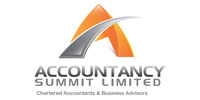More than one in two small businesses rely on ecommerce platforms to sell online but many face problems with fake reviews, late payments and infringement of intellectual property.
The Federation of Small Businesses (FSB) has set out proposals to protect and promote small business owners who use online sales platforms in the light of new research that has highlighted a number of key issues facing small ecommerce firms.
The withholding of funds owed to small businesses by online platforms is a growing problem, with the BBC reporting that both Etsy and Amazon have changed how they handle reserves, leaving some small businesses waiting over a month to be paid. One in six (16%) of small business users of Amazon in the FSB research said that it took more than a month to receive their money, potentially causing issues with their cashflow.
The FSB research findings show that:
- 53% of small firms sell products via online platforms such as Amazon, eBay and Etsy.
- 71% of those said that these platforms are "important" or "very important" to their business.
- 29% of those that are currently using platforms use them to trade internationally.
- However, 39% of the small businesses surveyed who had an issue with a platform said it was "difficult" or "very difficult" to resolve that issue.
- 16% of small businesses who reported issues with platforms said they were resolved "very unfairly".
Fake or malicious reviews are a key problem - one in eight small businesses (12%) who have used a platform in the past 12 months have reported malicious or fake reviews. Businesses also say that their products have been de-ranked (made less visible in search results) after a platform launched its own competing product, or even delisted altogether.
Intellectual property infringement is another area of concern, with many small businesses saying they have experienced a breach, including the copying of designs and products (20% of those surveyed using Amazon, 12% using eBay and 8% using Instagram and Facebook Marketplace).
"Ecommerce sites are an indispensable part of everyday life for millions of people, and many thousands of small businesses make use of them to get their product or service in front of as many people as possible. There is, however, a huge mismatch between small firms and online platforms in terms of size, resources, and, ultimately, power … Small firms are calling out for more to be done on issues like protection of their intellectual property, while platforms should commit to paying businesses as promptly as possible - a figure that would be a rounding error for a large ecommerce site could easily be the difference between survival or closure for a small firm." Tina McKenzie, FSB policy chair.
FSB recommendations for small online businesses
The FSB report, Net Benefits? Small business use of online platforms, proposes a number of key recommendations for regulators, platforms and the government, including:
- Platforms should pay small businesses within a maximum of thirty days, in line with the Prompt Payment Code.
- Platforms should invest more in systems to resolve issues for small businesses, including dedicated dispute handling resources.
- The UK government should consider legislation to make it an offence for an individual to post a fake and malicious online review.
- The UK government should legislate to introduce a rapid, effective and affordable dispute resolution procedure which would cover disputes between small businesses and ecommerce platforms, and between small businesses and other platform users, including consumers and other businesses.
- The Competition and Markets Authority should investigate the charging structures and levels of retail platforms, accommodation and food delivery platforms, to determine whether these are indicative of monopolistic behaviour.
Written by Rachel Miller.
